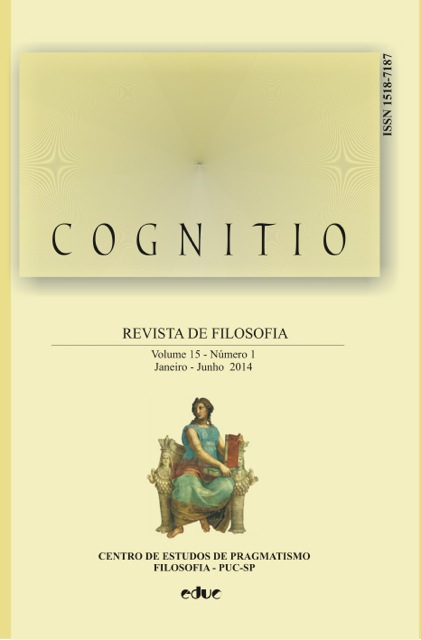Fazendo Epistemologia Cientificamente: Dewey contra Russell
Palavras-chave:
Epistemologia científica, Análise lógica, Pragmatismo, Mundo externo, Dewey, Russell.Resumo
Dewey afirma que Russell está errado ao pensar que há um problema filosófico legítimo em relação ao nosso conhecimento do mundo externo. Ele alega ainda que a tentativa de Russell de fundamentar o conhecimento em alegações autoevidentes pressupõe uma teoria da experiência que a ciência desacreditou. Em resposta, Russell argumenta que as críticas de Dewey são irrelevantes para a epistemologia científica, entendida adequadamente, e que, longe de estar solapada pela ciência contemporânea, as questões epistemológicas que ele trata nos são impostas pela física contemporânea. Argumento que, longe de resolver suas diferenças, a troca de ideias entre Dewey e Russell demonstra que seu desacordo é mais profundo do que qualquer um deles admite. Dewey, de fato, não entendeu o projeto epistemológico de Russell. Por outro lado, Russell não identifica corretamente a fonte do erro de Dewey e, consequentemente, não considera adequadamente a abordagem de Dewey à filosofia, e o desafio que representa para sua epistemologia. Como eu vejo, a divergência entre Dewey e Russell sobre conhecimento aprofunda ainda mais as divergências sobre a forma de resolver questões filosóficas, e estes desacordos mais profundos não são de natureza “científica” – pelo menos não no sentido que Dewey ou Russell usam este termo.









